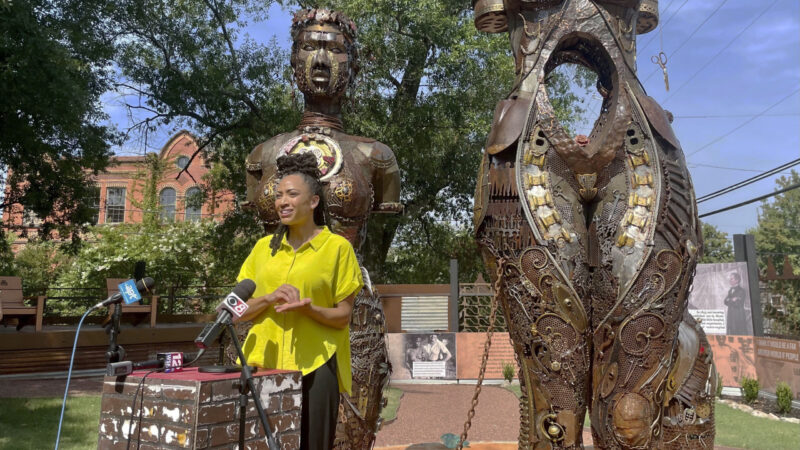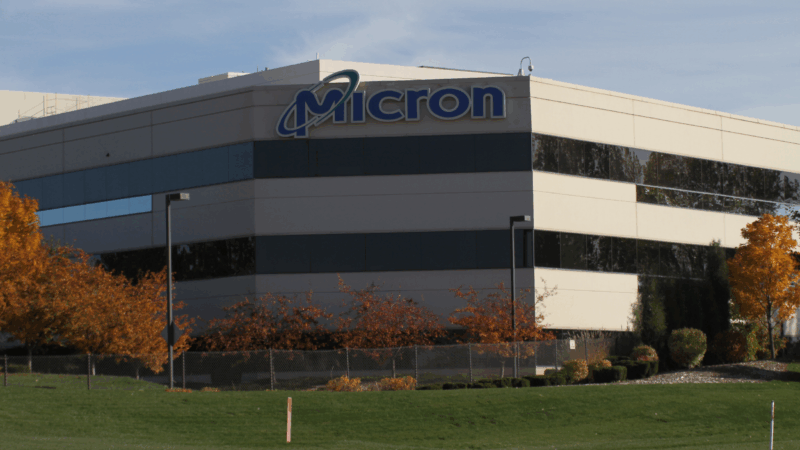Court ruling offers temporary victory for Alabama birth centers
Stephanie Mitchell, a certified professional midwife, speaks at a news conference, Aug. 8, 2023, in Montgomery, Ala. On Saturday, Sept. 30, a judge ruled that Alabama cannot shut down freestanding birth centers that meet certain standards, siding with midwives and doctors who challenged what they described as Alabama’s de facto ban on the facilities.
Alabama birthing advocates are celebrating a recent court decision in support of birth centers.
In a preliminary injunction issued Saturday, Montgomery Circuit Court Judge Greg Griffin ordered the Alabama Department of Public Health (ADPH) to license birth centers that meet certain national standards, rather than abiding by more stringent state guidelines.
“We’re absolutely thrilled that the court stepped in,” said Whitney Leigh White, attorney with the American Civil LIberties Union (ACLU).
White represents a group of midwives and doctors in Alabama trying to open birth centers, which are health care facilities where pregnant people can receive care and deliver outside of a hospital under the supervision of midwives, as well as nurses and obstetricians.
Alabama’s health department approved rules in August to license the facilities, which received widespread pushback from birthing advocates, including state and national midwifery groups. They said the regulations are unnecessarily strict, do not follow national guidelines and make it nearly impossible to open a birth center in Alabama.
Saturday’s ruling requires state health officials to license facilities that comply with standards established by the American Association of Birth Centers while the lawsuit continues.
Plaintiffs in the case argue ADPH doesn’t have the authority to regulate birth centers at all, because the facilities are not hospitals.
“The primary argument in the case is that the department is really overstepping its boundaries here and trying to seize an authority that it has not been given under Alabama law,” White said.
State health officials disagree, stating in court filings that the obstetrical care provided at birth centers requires them to be licensed as hospitals. In an email, a department spokesperson said ADPH does not comment on pending litigation and declined an interview request for this story.
At least three birth centers are in the works across Alabama, including Oasis Family Birthing Center in Birmingham. Obstetrician and gynecologist Dr. Heather Skanes opened the facility in September 2022 and completed 14 deliveries before closing in June due to the new ADPH licensing restrictions.
“Having to turn patients away has been devastating,” Skanes wrote in a court filing. “For many patients, choosing a birth center means exercising autonomy over their birth experiences when they may lack — or have been denied — the ability to do so in other parts of their lives or in other decisions affecting their health or their bodies. To have to tell patients that they were again being denied the ability to make this autonomous decision about their birthing experience because of ADPH’s actions was heartbreaking.”
ACLU officials said Skanes is working to obtain a license from ADPH and re-open in light of the injunction.
‘Bomb cyclone’ forecasted to bring heavy snow, blizzard conditions and dangerous travel
A 'bomb cyclone' is intensifying severe winter weather for millions of people across the U.S. The system is expected to knock out power and disrupt holiday travel.
Russia sends 3 Iranian satellites into orbit, report says
The report said that a Russian rocket sent the satellites on Sunday from a launchpad in eastern Russia.
Viral global TikToks: A twist on soccer, Tanzania’s Charlie Chaplin, hope in Gaza
TikToks are everywhere (well, except countries like Australia and India, where they've been banned.) We talk to the creators of some of the year's most popular reels from the Global South.
This painting is missing. Do you have it?
An important work from a rediscovered artist has been absent from public view since the 1970s. A New York curator is hunting for it.
Memory loss: As AI gobbles up chips, prices for devices may rise
Demand for memory chips currently exceeds supply and there's very little chance of that changing any time soon. More chips for AI means less available for other products such as computers and phones and that could drive up those prices too.
Brigitte Bardot, sex goddess of cinema, has died
Legendary screen siren and animal rights activist Brigitte Bardot has died at age 91. The alluring former model starred in numerous movies, often playing the highly sexualized love interest.








